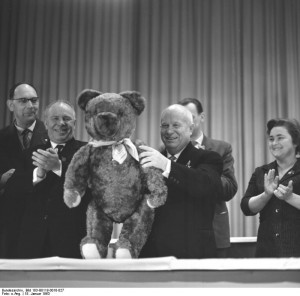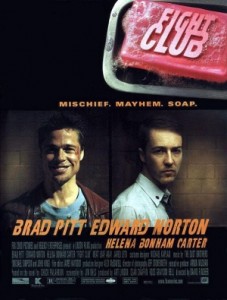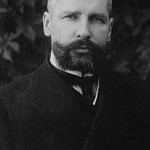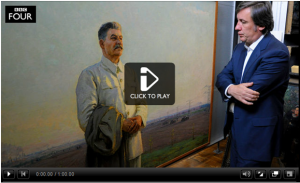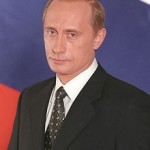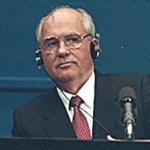An interesting video on the pressures on the regime in the immediate run up to the revolution:
http://www.bbc.co.uk/learningzone/clips/the-abdication-of-tsar-nicholas-ii-in-1917/5672.html
With my group we’ve started to plan the essay. Below is our first thought – we’ll modify this on monday and post a new version.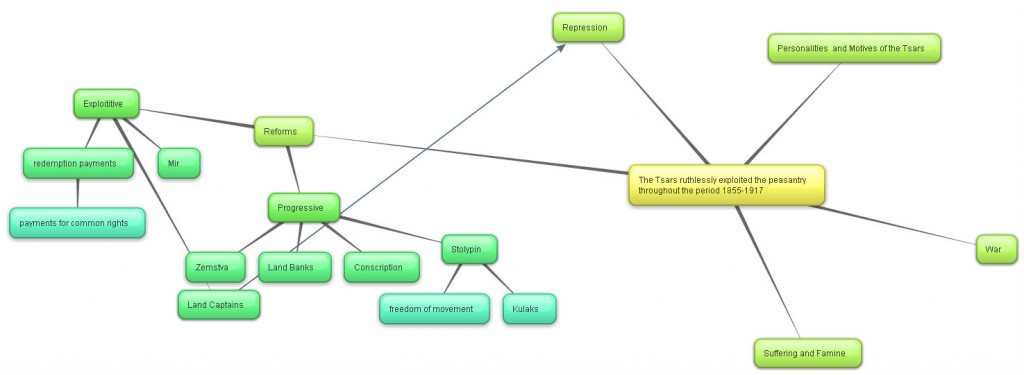
Mr Kydd here.
The little BBC bitesize video has a key line in it – “it became apparent how little support the Tsar had”. By 1917 the three “props” (Hans Rogger) of Tsarism had been lost. Rogger suggests that there were three such props;
The Landlords
The Church
The Army
It is possible to argue that the Emancipation Edict broke the bond of mutual self interest between the the landlords and the tsar. It is a bit thin but this could be developed to say that Bloody Sunday did the same for the Tsar’s relationship with the Church. The key point about the events of 1906 was that the army remained loyal. In 1917 this was not the case – the First World War made sure of that.
In other words Tsarism’s inability to maintain the support and loyalty of the elites that in required to govern led to the collapse of system under the unique pressure of the First World War.

